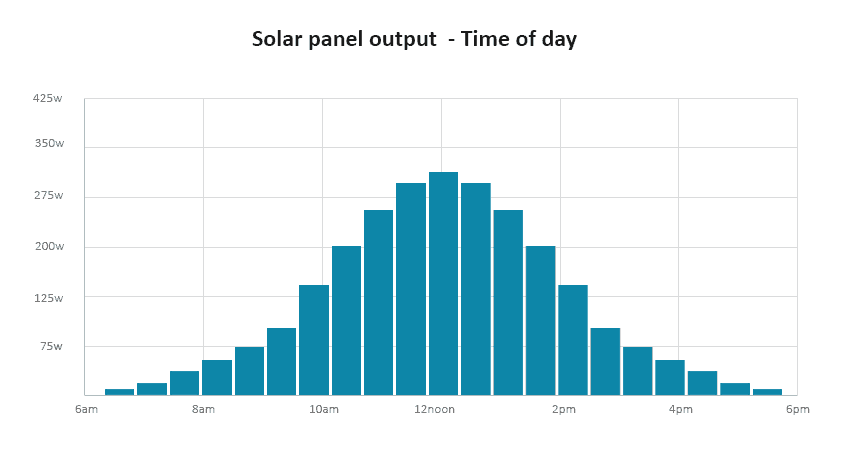Solar panels are most effective when they receive direct sunlight, which means the best time to use solar panels is during daylight hours when the sun is shining.
- Peak Sunlight Hours:
- The best time for solar panels is during what is referred to as “peak sunlight hours.” These are the hours when the sun is high in the sky, and sunlight is most direct. In general, this corresponds to the period from 9 a.m. to 3 p.m. local time.
- Seasonal Variations:
- Solar panel efficiency can vary with the seasons due to changes in the sun’s angle. During the summer months, when the days are longer and the sun is higher in the sky, solar panels typically produce more energy. In contrast, during the winter, the sun is lower in the sky, and days are shorter.
- Orientation and Tilt:
- The orientation and tilt of the solar panels also play a crucial role. Panels facing south in the Northern Hemisphere (or north in the Southern Hemisphere) and tilted at an angle approximately equal to the latitude of the location are generally considered optimal for capturing sunlight throughout the year.
- Weather Conditions:
- Solar panels can still generate electricity on cloudy or overcast days, although their efficiency is reduced. While direct sunlight is ideal, even diffused sunlight can contribute to power generation.
- Grid-Tied Systems:
- For grid-tied solar panel systems, the electricity generated during the day is fed into the grid. In some cases, you may receive credits for excess energy generated during peak sunlight hours, which can be used when the sun is not shining, such as at night.
- Off-Grid Systems with Battery Storage:
- If your solar panel system is off-grid and includes battery storage, the best time to use solar-generated electricity is during periods when the sun is shining less or not at all. This allows you to rely on stored energy during the night or cloudy days.
In summary, the best time to use solar panels is during peak sunlight hours, typically from 9 a.m. to 3 p.m., when the sun is high in the sky. However, the overall effectiveness of solar panels is influenced by factors such as seasonal variations, weather conditions, and the orientation and tilt of the panels. Optimal system design and placement can help maximize the benefits of solar energy throughout the year.


